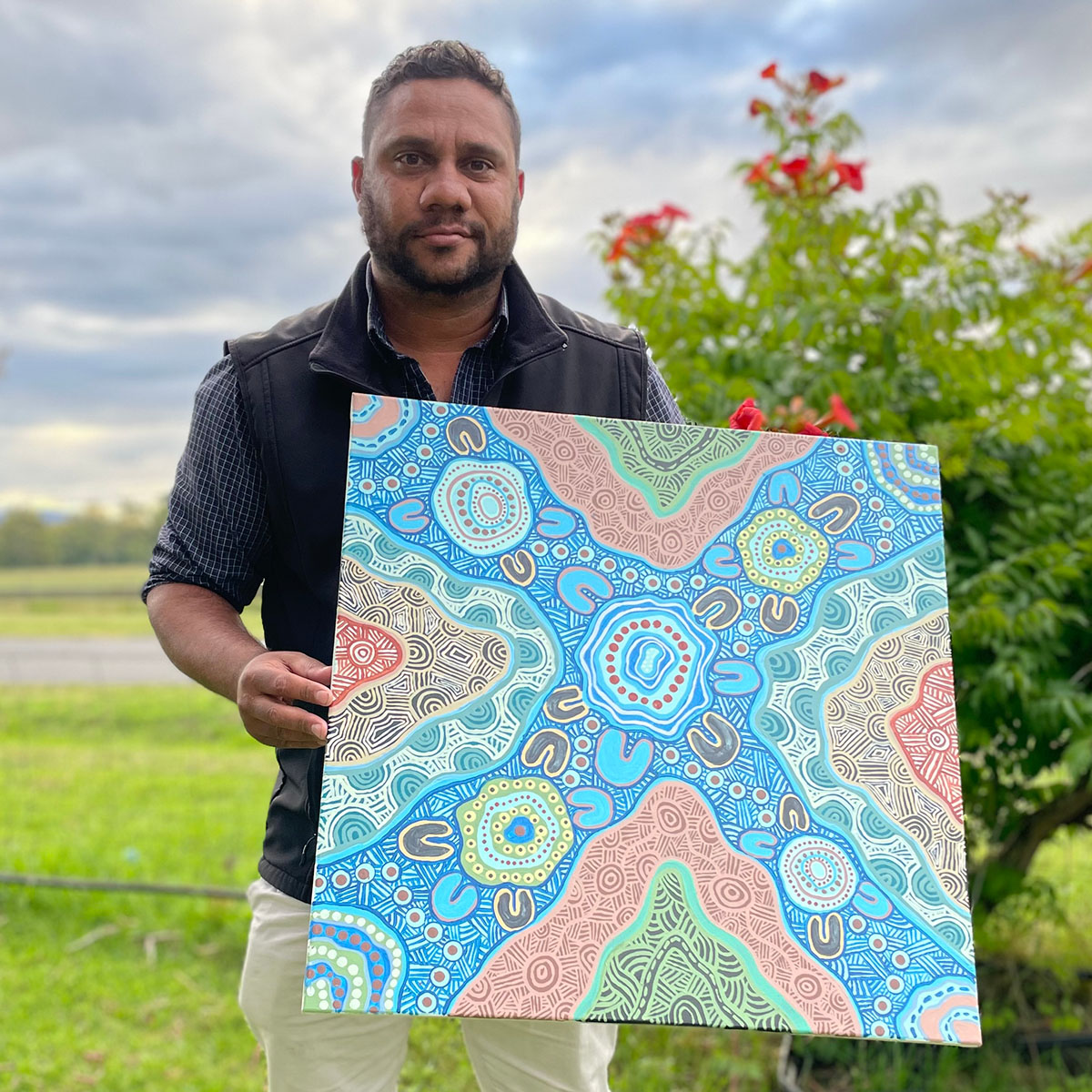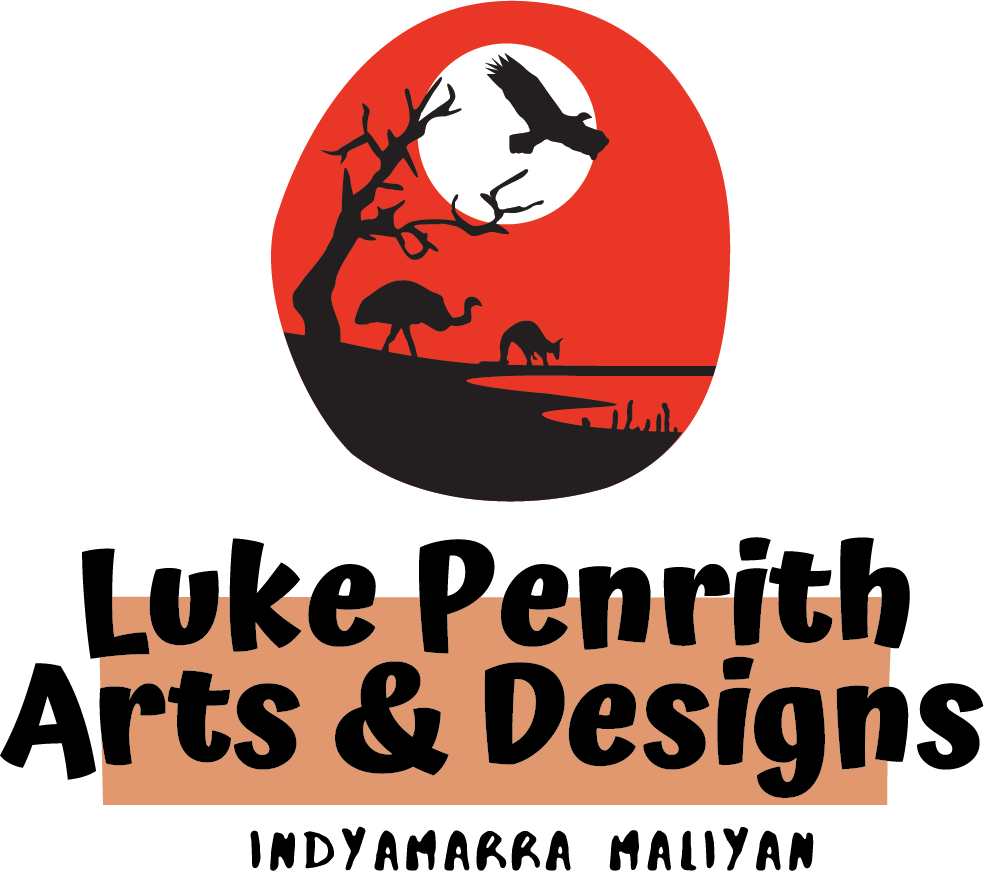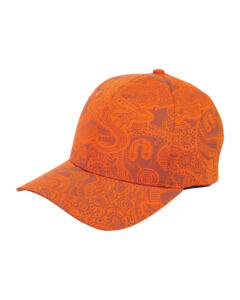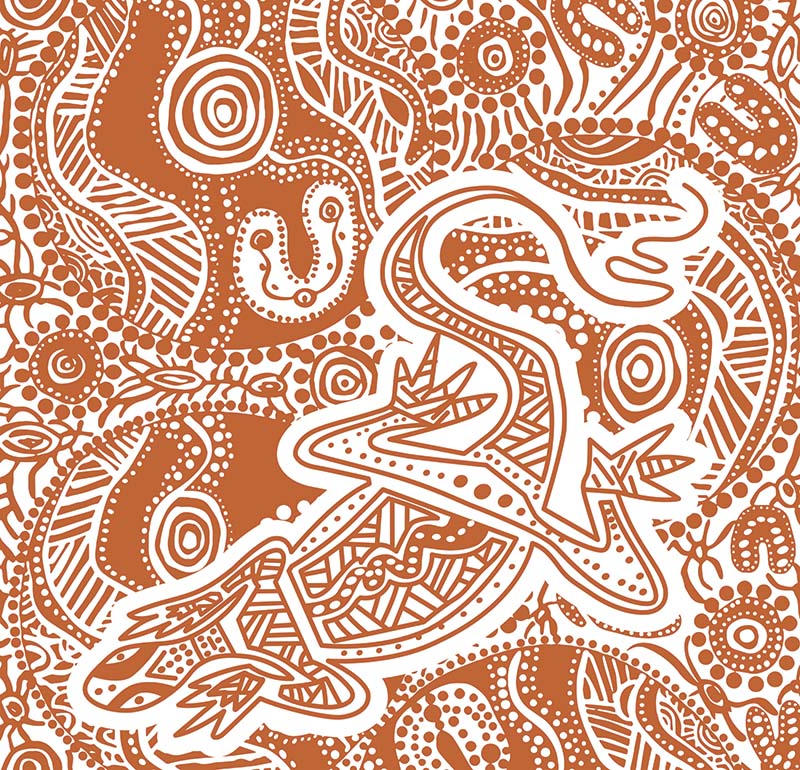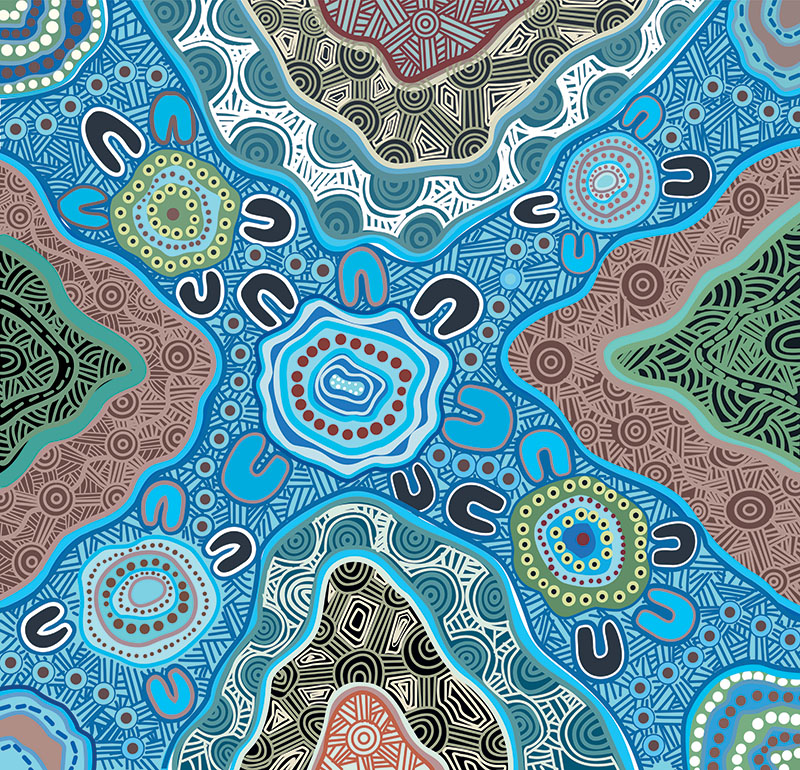Luke Penrith
About Luke
Luke Penrith’s ancestral bloodlines are connected through the Wiradjuri of South Western NSW, Wotjobaluk of Western Victoria, the Yuin of the Far South Coast of NSW and the Gumbaynggirr Nation of the North Coast of NSW.
Working within Aboriginal Affairs from local grass roots to State and National programs, Luke also worked in elite sports administration for the AFL, managing the Indigenous Academies and 11 years in the employment and training Industry supporting, mentoring and nurturing Aboriginal job-seekers. Luke’s life’s work has been focused on building a foundation and work ethic in Aboriginal communities to grow and secure long-time careers in their chosen industries.
Luke designed the indigenous jumpers for the AFL team GWS Giants in 2015 and 2016.
Lore, culture and heritage is paramount to Luke and how he is represented within communities. Luke’s artwork technique reflects on what he sees, hears and can smell and touch; he is a modern contemporary Aboriginal Artist, living in Brungle NSW.
You can see a few samples of Luke’s workwear below:
About Luke's Bloodlines design
BLOODLINES is a creation showing the inter-connectedness of the land. It’s our food, our culture, our spirit and identity. Luke’s bloodlines are connected through the rivers, the mountains, the coastline and the plains.
The Wiradjuri Gugar is Luke’s family’s spiritual emblem. Totems define peoples’ roles and responsibilities. The artwork on our shirts represents his four family bloodlines and cultural connections across South Eastern Australia. His art shows his unique style; bold shapes and tones, representing Luke’s mob and country with indyamarra (respect).
About Luke's Yarning Circles design
YARNING CIRCLES have been used by First Nations people since the beginning of time and it continues to be an important process with Aboriginal and Torres Strait Islander culture.
A Yarning circle is a practice of speaking and listening from the heart. It is a collaborative way to communicate in a respectful place without judgement. Dialogue allows all to grow in mutual understanding, experience and knowledge. Culturally, it builds respectful relationships and is used to preserve and pass on cultural knowledge.”

